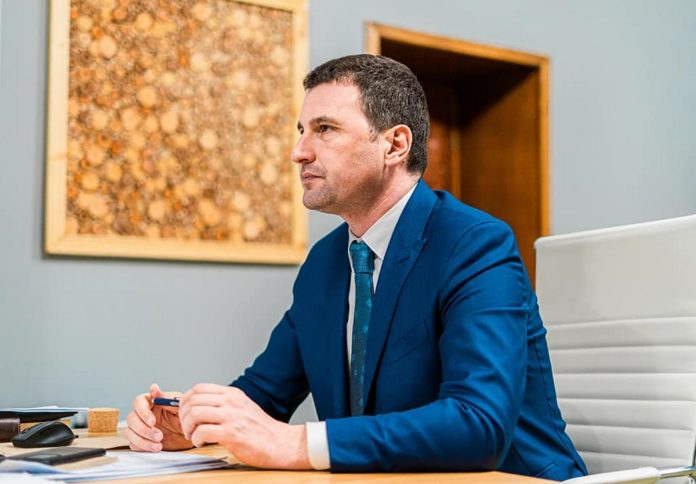Romania’s borrowings from domestic and external markets exceeded RON 250 billion in 2024, but in 2025 they will drop to RON 230 billion and I hope that in the coming years we will have increasingly lower interest rates, Finance Minister Tanczos Barna told AGERPRES in a recent interview.
„In 2025 we will borrow RON 20 billion less than in 2024. This decrease will also be felt on external loans and loans on the domestic market. Monthly funding and the need for financing are established according to the expenses and the forecast of monthly income and expenses, but, overall, this year we will borrow less money than last year. (…) Last year we had total borrowings from domestic and external markets in excess of RON 250 billion; we go down to RON 230 billion and I hope that in the coming years we will be able to balance this situation and have increasingly lower interest rates,” said Tanczos.
The minister pointed out that, after the December shock caused by the cancellation of the presidential elections interest rates increased, but they fell back as soon as the first measures were taken in order to meet the budget deficit target of 7%.
„After that, the budget made on a deficit of 7% gave a very clear signal. The negative outlooks were received as serious messages by the government and the coalition and the measures are already appreciated by investors, because we have entered a downward curve on everything that means loans and interest rates domestically and internationally. Things have started to evolve in a good direction from. (…) Over a few weeks, we had an increase of 0.5%, on average, but we have also returned to the level of interest rates of October, November 2024. It is a positive signal given by the international markets and investors, a confidence in the Romanian economy and in the government’s measures. We must continue on this road, which is a difficult one, but which will certainly lead us to restore the fiscal and budgetary balance and to regain confidence, which is lost very easily every time and is regained only with a lot of work.”
Tanczos added that it is considering changing Romania’s lending mix and policy, with a much greater focus on the Tezaur and Fidelis bond issues, precisely in order to decrease exposure to international markets and to reduce exchange rate risk and, at the same time, to be able to pay as much interest as possible to Romanian citizens.
„This money, as interest, is paid anyway and will be collected by someone anyway. Why shouldn’t the citizens collect them, if the state is still borrowing? The conditions are advantageous, they are the best interest rates on the market, the interest is non-taxable. At Fidelis, for example, there is also that bonus if the buyer is a blood donor. It is already a tradition of the Ministry of Finance and I will not spoil anything that goes well in the ministry and we will go ahead with that bonus for blood donors. So, we borrow more and more from citizens, in order to pay interest to citizens and I intend to borrow as little as possible from banks and international markets,” Tanczos said.
As for the bond issues on foreign markets, the minister said that we have already had an exit on these markets, „with an acceptable result”, namely over EUR 4 billion taken „at the interest rates that then began to decrease.”
„It was at the end of January, just before the approval of the budget, but after the publication of the budget by the government. Things are in a positive development from this point of view. There we saw, and in the following weeks it was confirmed several times, that we started to come on a downward trend in terms of the interest we have to pay. We can enter an area of stability in the medium term.”
According to him, plans are currently being made for a new Eurobond issue, which will probably be out in March or April.
„We will see, we will analyse what is the best option and the best, opportune period for such bond issue, so that we can also secure financing, a refinancing of the debt that reaches maturity and we can also provide financing for RON 230 billion this year, necessary to finance the 7% deficit,” the minister said.
AGERPRES




